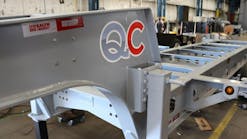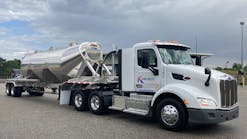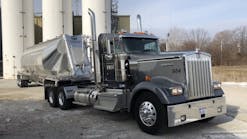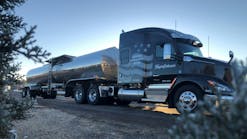More than 100 associations and companies—including Coca-Cola, Kraft, and MillerCoors—officially launched the Coalition for Transportation Productivity (CTP), urging Congress to responsibly raise the federal vehicle weight limit on US Interstate highways.
CTP supports the Safe and Efficient Transportation Act of 2009 (HR 1799), which would increase the Interstate weight limit to improve trucking productivity and allow for safer highways, a cleaner environment and a stronger economy.
“America’s freight transportation infrastructure is on the verge of becoming overwhelmed over the next decade,” said CTP co-chair John Runyan. “Freight hauled by trucks in the United States is expected to double by 2025, and truck traffic is growing 11 times faster than road capacity. The Coalition for Transportation Productivity is asking Congress to responsibly reform truck weight limits before America’s highways become even more congested and further threaten our safety, environment, and economy.”
Introduced by US Rep Michael Michaud, HR 1799 allows individual states to increase their Interstate vehicle weight limits to 97,000 pounds—but only for vehicles equipped with a sixth axle. Without changing the size or length of the truck, the additional axle would maintain braking capacity and the current distribution of weight per tire while reducing pavement wear. The bill also imposes a user fee for six-axle units that would fund bridge repair.
“The biggest single factor in tractor-trailer accidents is vehicle miles traveled. Trucks are now traveling twice as many miles as they were in 1982, increasing the chances of collision as more trucks are now needed to meet demand,” Runyan said. “A proposal like HR 1799 would reduce the number of trucks needed to deliver a ton of freight and decrease vehicle miles traveled, making roads safer while cutting fuel and emissions by 19 percent for each ton carried.”
Multiple academic studies have shown, and empirical evidence proves, that raising the weight limit to 97,000 pounds for six-axle trucks would improve highway safety, protect the environment, and benefit business.
A 2009 Wisconsin Department of Transportation study found that if a law like HR 1799 had been in place in 2006, it would have prevented 90 truck-related accidents in the state during 2006. Employers in the state would have saved more than $150 million in transportation costs.
In 2001, the United Kingdom raised the gross vehicle weight limit for six-axle trucks to 97,000 pounds. Since then, fatal truck-related accident rates have declined by 35 percent. More freight has been shipped, while the vehicle miles traveled to deliver a ton of freight declined.








